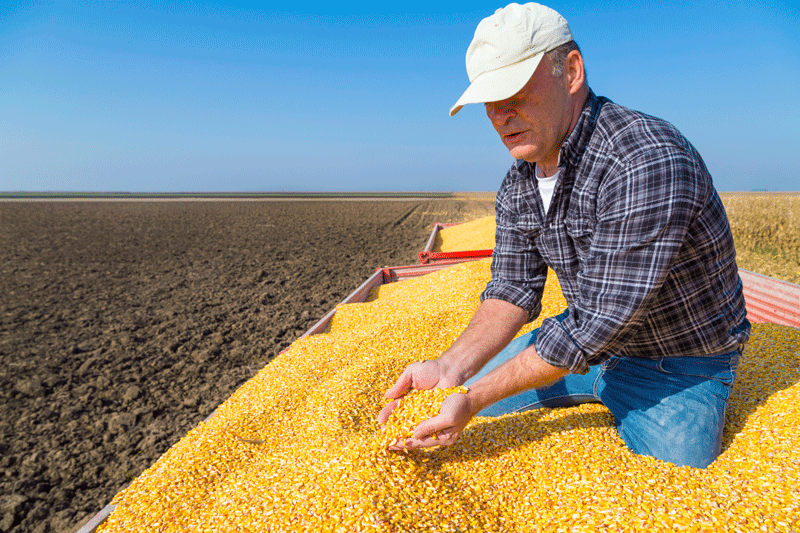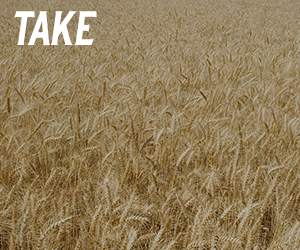Farmer saved seed
COMPLIANCE UNDER THE NEW PBR ENVIRONMENT
ON FEBRUARY 27, 2015, Canada’s new Plant Breeders’ Rights (PBR) Act was implemented by the Government of Canada. All crop varieties that were and will be granted PBR after that date will be protected under the new act (PBR91), even those varieties for which rights were applied before that date. All varieties that were granted protection before that date will continue to be protected under the old Act (PBR78).

What does this mean for farmers? There are some significant differences between the two Acts.
1. Varieties can be protected for a longer period of time: 20 years under PBR91 vs 18 years under PBR78. It is important to note though, that for most varieties, even under PBR78, the PBR was cancelled before the time expired.
2. The Farmers’ Privilege, or the ability for farmers to save grain of protected varieties to use as seed on their own holdings, is clearly spelled out in PBR91. PBR78 did not include a farmers’ privilege — just the fact that it did not prohibit farm saved seed allowed the practice to continue. Now, farmers can have confidence that the ability to save harvested material, clean it, store it, and plant it as seed on their own farms is entrenched in federal legislation.
Grain of protected varieties can only be used as seed (farm saved seed) on the farm of the farmer who legitimately acquired the seed in the first place (e.g. bought certified seed). Both PBR78 and PBR91 clearly prohibit the sale of farm saved seed. Sale includes providing the farm saved seed in exchange for money or for a service or product.
Here are a couple of examples:
a) Farmer A buys certified seed and saves, cleans, and stores some of the resulting grain and plants it on his/her farm. This is allowed by PBR91.
b) Farmer A sells that farm saved seed to someone else. This is not permitted under both PBR78 and PBR91. It is also not permitted to trade farm saved seed for a service or product. Both Farmer A and the person who buys the seed or obtains it in exchange for a service or product could be liable for damages.
c) Farmer A provides farm saved seed of a protected variety, calling it common seed, as part of a custom seeding package for Farmer B. This is also not permitted under either PBR Act. The custom seeding is a service. Both Farmer A and Farmer B would be in breach of PBR and could be liable for damages.
d) Farmer A buys grain of a protected variety and uses it as seed. This is a breach of PBR91 because the grain that Farmer A acquired to use as seed was not produced on his/her own holdings. Both Farmer A and the seller of the grain could be liable.
3. The breeder has authority over more acts in PBR91. PBR78 prohibits the production or sale of seed of protected varieties without the permission of the breeder. PBR91 adds reproducing, cleaning/ conditioning, stocking for sale, and exporting and importing. While the farmers’ privilege allows farmers to produce, reproduce, clean/ condition, and store for use as seed on their own farms, doing any of these things with seed that was acquired illegally (e.g. purchased farm saved seed) is a breach of PBR. A couple of examples:
a) Farmer A buys certified seed and saves some of the grain it produces and has that grain conditioned/cleaned to use as seed on his/her own farm. This is allowed by PBR91.
b) Farmer A takes farm saved seed to a cleaner, but only takes some of that farm saved seed back to his/ her own farm, leaving some with the cleaner in exchange for cleaning services. This is not permitted by PBR91 and both the farmer and the seed cleaner are in breach of PBR91 and could be liable for damages.
c) Farmer A instructs the seed cleaner to distribute the conditioned farm saved seed to other farmers. This is also a breach of PBR91, because the farm saved seed must remain in the possession of the farmer who legitimately acquired the original seed. Everyone associated with the transaction would be liable.
Seed conditioners are advised to include a farmer declaration in their work orders. The work order should require the farmer to sign that the farm saved seed is from grain produced on his/her own holdings from seed that was legally acquired, and that it will be planted on his/her own holdings. Seed conditioners are being advised to decline to provide the service if the farmer does not sign the declaration.
4. If a breeder can provide that he/she has not had the ability to exercise his or her rights on the seed (e.g. collect a royalty), in other words if the seed was acquired illegally, the breeder can seek compensation on harvested material (grain). Compensation is not just lost royalty, but can include lost markets and market opportunities and court costs. This provision means that not only the person who illegally acquired the seed is liable, but so is the person or organization that acquired the grain. For example:
a) Farmer A buys certified seed and saves some of the grain and sells it as seed (or exchanges it for a service or product) to Farmer B, who produces grain from that seed and delivers that grain to a buyer (an elevator, feed mill, feed lot, miller, etc.). Selling farm saved seed is illegal, so farmer A and B are in breach of PBR91. The harvested material provisions of PBR91 mean that the buyer of the grain may also be liable.
Like seed conditioners, grain buyers are also advised to require farmer declarations.
For more information on the benefits and the obligations associated with the new PBR environment, please visit www.PBRfacts.ca.
About the author: Patty Townsend is the former Chief Executive Officer of the Canadian Seed Trade Association. •























